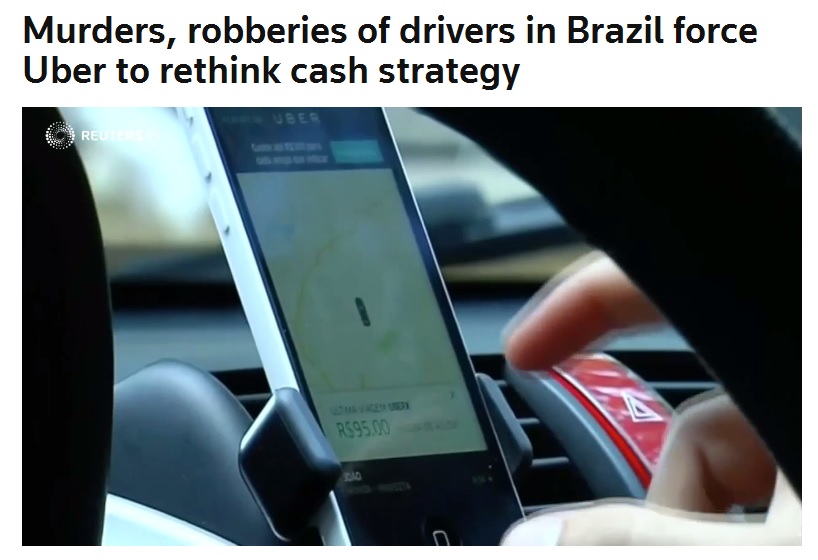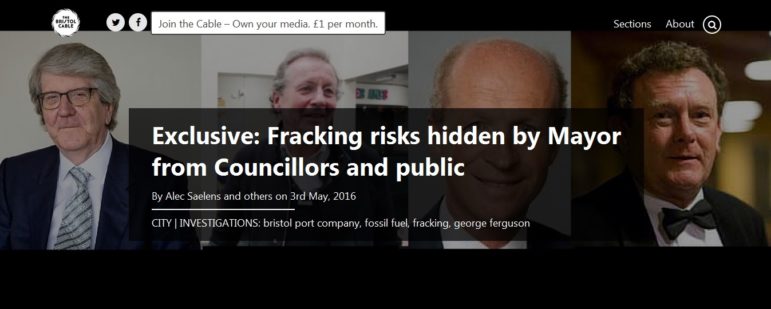 Freedom of information requests can generate unique stories on a wide range of subjects. Here’s a sampling that covers fishing, Uber, football, and a suspect land deal.
Freedom of information requests can generate unique stories on a wide range of subjects. Here’s a sampling that covers fishing, Uber, football, and a suspect land deal.
They’re united in revealing the potential for developing stories based on requesting information — about government permits, local crime statistics and official correspondence.
Have a great story you mined from a FOI/RTI request? Send it to us and we’ll share it with journalists worldwide.
Permit Records Tell a Story
 The Sri Lankan Right to Information Act is only a few months old but Sunday Times reporter Sandran Rubatheesan wasted no time using it. The resulting article shows that many fishing permits were issued despite warnings by the European Union that the recipients were engaged in illegal fishing practices. The EU eventually banned Sri Lanka’s fish imports in 2015, at a high cost to the country.
The Sri Lankan Right to Information Act is only a few months old but Sunday Times reporter Sandran Rubatheesan wasted no time using it. The resulting article shows that many fishing permits were issued despite warnings by the European Union that the recipients were engaged in illegal fishing practices. The EU eventually banned Sri Lanka’s fish imports in 2015, at a high cost to the country.
Crime Data Reveals Uber Robberies
 A Reuters analysis of crime data in Sao Paulo, Brazil, showed a spike in robberies involving Uber drivers since July, when the company started accepting cash payments. Reporters Stephen Eisenhammer and Brad Haynes filed two separate FOI requests – one for robberies involving Uber drivers and a separate one for taxi drivers. Amazingly, their requests were answered in just over three weeks and the digitization of records made a text search feasible. “I’m not sure how the FOI system here stacks up internationally, but it appears to be a benchmark in Brazil,” Haynes commented.
A Reuters analysis of crime data in Sao Paulo, Brazil, showed a spike in robberies involving Uber drivers since July, when the company started accepting cash payments. Reporters Stephen Eisenhammer and Brad Haynes filed two separate FOI requests – one for robberies involving Uber drivers and a separate one for taxi drivers. Amazingly, their requests were answered in just over three weeks and the digitization of records made a text search feasible. “I’m not sure how the FOI system here stacks up internationally, but it appears to be a benchmark in Brazil,” Haynes commented.
Sports Desk: Drug Data Uncovered
 At least 39% of players active in the English Football League last season were not drug tested by United Kingdom’s anti-doping agency, according to official figures obtained via FOIA by Phil Shepka, Brendon Mitchell and Tom Garry for the BBC. [Access to such data may depend on whether the government is involved in supervising sports, so that access laws are applicable.]
At least 39% of players active in the English Football League last season were not drug tested by United Kingdom’s anti-doping agency, according to official figures obtained via FOIA by Phil Shepka, Brendon Mitchell and Tom Garry for the BBC. [Access to such data may depend on whether the government is involved in supervising sports, so that access laws are applicable.]
Asking for Official Correspondence
 Asking for the records of a controversial negotiation paid off for reporters of The Bristol (UK) Cable. They got back 72 pages of correspondence between the chief city negotiator and executives of a company seeking to buy city land. “Documents obtained by the Cable show that behind the scenes, away from the prying eyes of the public and their elected representatives, Bristol Port Company (BPC) was applying for Petroleum Exploration and Development licences (PEDL) in preparation for oil and gas extraction, which could include fracking, in the Bristol area,” wrote Alec Saelens, Adam Cantwell-Corn, Alon Aviram, Lorna Stephenson and Sid Ryan.
Asking for the records of a controversial negotiation paid off for reporters of The Bristol (UK) Cable. They got back 72 pages of correspondence between the chief city negotiator and executives of a company seeking to buy city land. “Documents obtained by the Cable show that behind the scenes, away from the prying eyes of the public and their elected representatives, Bristol Port Company (BPC) was applying for Petroleum Exploration and Development licences (PEDL) in preparation for oil and gas extraction, which could include fracking, in the Bristol area,” wrote Alec Saelens, Adam Cantwell-Corn, Alon Aviram, Lorna Stephenson and Sid Ryan.
 Toby McIntosh is editor of FreedomInfo.org, a nonprofit website based in Washington, D.C., that covers international transparency laws. After 39 years at Bloomberg BNA, he semi-retired in 2014. He has filed numerous U.S. FOI requests and written about FOI policies worldwide. He is a Steering Committee member of FOIANet, an international network of FOI advocates.
Toby McIntosh is editor of FreedomInfo.org, a nonprofit website based in Washington, D.C., that covers international transparency laws. After 39 years at Bloomberg BNA, he semi-retired in 2014. He has filed numerous U.S. FOI requests and written about FOI policies worldwide. He is a Steering Committee member of FOIANet, an international network of FOI advocates.
